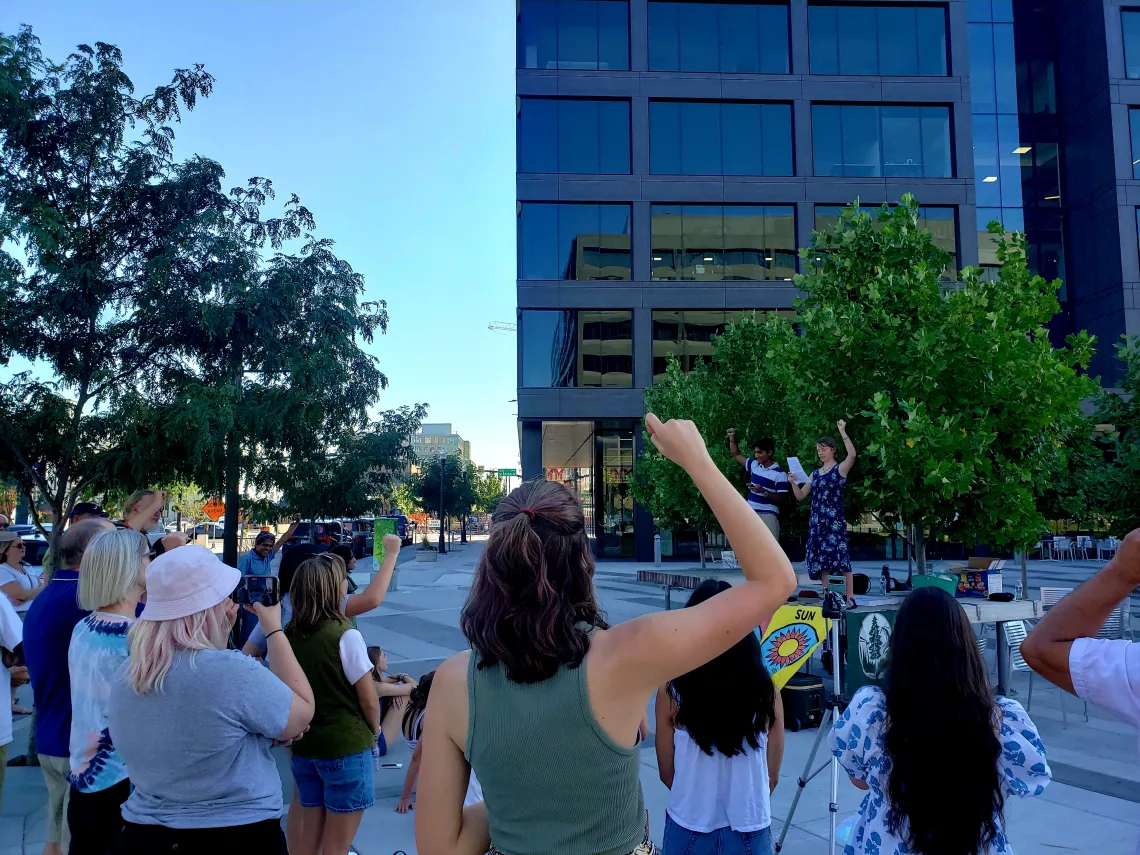Abridged version published as an Op-Ed in the Idaho Statesman on Aug 7, 2023:
Open letter: We are the ones who will live in the future Idaho Power is shaping | Opinion

Dear Lisa Grow, Idaho Power CEO:
Right now, you're in a position of power that could make or break Idaho's future. Climate change has already brought on severe droughts, record-high temperatures, and increased wildfires in our region. Meanwhile, Idahoans are also struggling with increased housing and energy costs. As young people who love where we live, we are concerned about the future for these reasons and many more. We've been organizing and advocating for clean energy solutions, and we are asking you to make decisions to reduce climate pollution and stabilize customer bills while providing economic and environmental benefits to our communities.
We appreciate Idaho Power's ambitious clean energy goals. In your Statement on Idaho Power’s Commitment to Clean Energy, you declared “the clean energy revolution is here” and outlined Idaho Power’s plan to reach 100% clean energy by 2045. However, your recent proposals at the Idaho Public Utilities Commission, tell us that you only stand behind your “commitments” to clean energy when they benefit the profits of you and your shareholders, not the 620,000 community members you serve. Your proposals to decrease rooftop solar export credit rates and increase fixed service charge fees on customer bills are a direct contradiction to your claims of being rooted in “an unwavering commitment to reliability and affordability.” If your company is truly rooted in these values, you would not be proposing changes that betray the communities that rely on your service to survive.
For starters, Idaho Power’s recent proposals would decrease the rooftop solar export credit rate by nearly 30% in the first year alone (from an average 8.8 ¢/kWh to an average 5.96 ¢/kWh)—and to even lower unknown rates each year after that—using your self-funded and controversial “VODER Study” calculation methods. Your low-balled rates are 55% lower than expert recommendations and fail to take into account the full range of quantifiable values that rooftop solar has on our grid, communities, and environment. For a company that claims to believe in the value of clean energy, it’s quite interesting that when it comes to customers making their own energy, the environmental and public health benefits are suddenly hard to quantify. If you truly wish to support “the growth and vibrancy of the people who live, farm, and do business here,” you should fairly compensate your customers for their contributions to the grid. Support ALL forms of solar energy—not just the utility-scale projects that suit you.
On top of the proposed export credit rate change, you are also proposing to triple the fixed service charge fee on residential power bills from $5 to $15, and after 3 years raise it to $35, one of the highest in the nation. Increasing fixed fees could negate the savings that rooftop solar owners see on their bills each month from making their own energy. Increasing these fees also creates a higher energy burden for low-income customers, disproportionately harming those struggling the most in the community while benefiting wealthy, high power consumers. An increase in fixed fees—combined with a decrease in the export credit rate—would only add additional barriers to these folks who need the cost-saving benefits of solar the most.
Not everyone has the privilege and luxury to ignore their energy bill and live without giving the climate crisis a second thought. We will have to deal with the consequences of your inaction for the rest of our lives—we will not be able to ignore the world burning around us because you refused to acknowledge the importance of locally-owned solar to our public health, grid resiliency, and the environment.
When discussing June 2021’s historically high temperatures and energy demands, you explained that a diversity of energy resources will be incredibly “important as we continue to reach for a 100% clean energy mix.” A huge part of that mix can and should be rooftop solar, if you’d only make it an accessible option. Locally-owned solar allows your customers to have a part in producing the energy they use and can help lower their monthly electricity bills. It provides grid stability and reliability, improving your ability to keep the lights on–even during natural disasters and heat waves. It also helps curb energy demand on the grid during peak periods (like hot, sunny summer days), which reduces the need for you to build more power plants or buy expensive energy on the market, which in turn helps keep rates low for all of your customers. If that isn’t enough, local solar keeps economic benefits in the community and according to one utility analysis, can create as many as 30 times more jobs than utility-scale projects.
You have the power to champion affordable, locally-owned solar, but instead you push proposals that hurt solar owners, businesses, and entire communities. The choice is yours: are you going to prioritize people and the planet, or the amount of money in the pockets of you and your shareholders? We, the youth, demand change. We are the ones who will face the future consequences of your inaction, whose future children will be raised on a planet destroyed by the ultra-wealthy and fossil fuel companies. As the climate crisis intensifies all around us and the date on your commitment to 100% clean energy draws closer, we will not stand idly by. Our voices will be heard: we will protest, we will testify at Public Utilities Commission hearings, and we will mobilize your customers to keep you from lining your own pockets and leaving communities to burn in the sun.
From,
Idaho Climate Justice League
